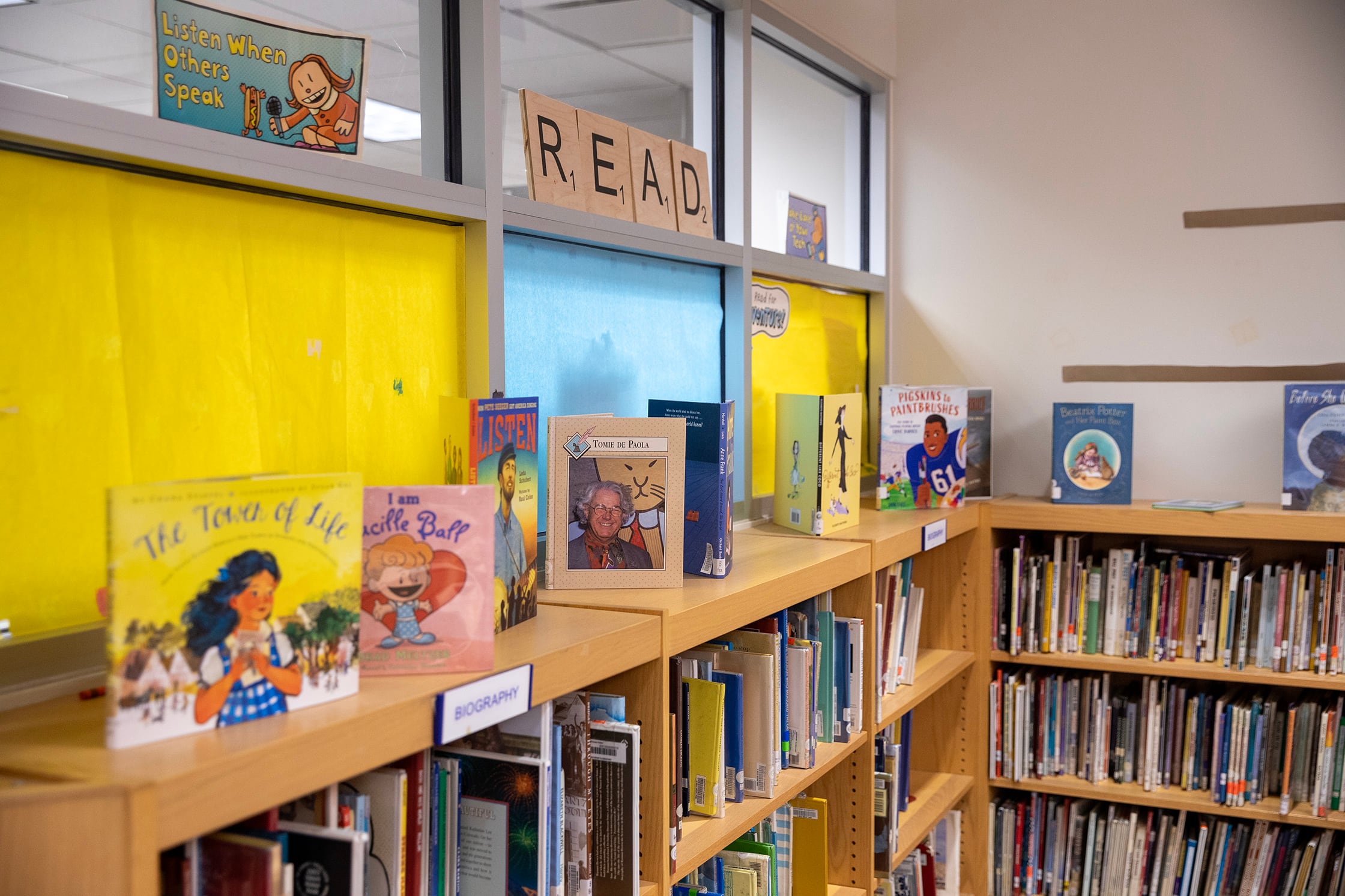Sign up for Chalkbeat Philadelphia’s free newsletter to keep up with the city’s public school system.
When Deborah Grill was at Roosevelt Middle School in Germantown in 1994, the Philadelphia school district had 176 functioning school libraries with full-time certified librarians.
Today, there is just one full-time librarian.
“People think of it as an extra,” said Grill, who was a teacher, literacy coach, and librarian in her 34 years with the district.
That mentality is now changing. The school district, along with the advocacy group Philadelphia Alliance to Restore School Librarians (PARSL), applied for and received a nearly $150,000 federal grant to develop a plan for increasing the number of school libraries.
Study after study, Grill said, has shown a positive correlation between having a quality school library program and student achievement in reading. It is a correlation, not a causation, she stressed: Schools with libraries are likely to be better funded overall, with a more stable teaching staff and other resources.
But the research also shows that having trained librarians is especially beneficial for low-income districts.
PARSL was founded two years ago by educators, policymakers, business leaders, and others interested in the issue. Deb Kachel, an educator and former school library director in Lancaster County who is a member of the steering committee for PARSL, said the group will look into how other cities, including Boston, rebuilt their school library systems.
“There are not enough librarians,” she said, adding that only about 20 teachers now in the system are certified to do that in Philadelphia. She said the group will investigate what barriers other cities faced in putting their school libraries back into service, what solutions they found, and how they paid for the initiative: “We’ll take those strategies and apply them to Philadelphia.”
The district now has four certified librarians working as such, but three are part time — teachers assigned a few hours a day or week to library duty in their schools. In a few schools, parents and volunteers occasionally staff libraries. The only school with a full-time librarian is Masterman, the most selective in the city.
The Philadelphia district, she said, is in the process of hiring a director of school libraries who will be “instrumental” in developing a plan to recruit and train more people. “We know there are teachers who are interested” in doing this, Kachel said.
The project is one of 35 nationwide that won grants, out of 141 originally submitted, from the U.S. Institute of Museums and Library Service as part of the Laura Bush 21st Century Librarian Program. In addition to researching strategies in other cities, the planning group, which will include the district and PARSL members, will also build a pipeline to recruit a diverse group of candidates to obtain librarian certification.
Ultimately, the initiative, slated to begin in the coming school year, will create a “five-year, replicable strategic plan to restore school librarians … crafted and vetted by district officials and community leaders,” including strategies for communications, funding, and university training options, the PARSL proposal for the grant says.
It will also look at existing building conditions in the district’s schools and what needs to be done to renovate and update long unused library spaces. It is creating a website that will include surveys, presentations, reports, research, and findings.
While Drexel University discontinued its school librarian certification, a few other nearby colleges and universities offer programs, including Rutgers University and the University of Pittsburgh, Kachel said. But since the training is online, potential librarian candidates have several options, according to the Pennsylvania Department of Education.
Grill, a member of the Alliance for Philadelphia Public Schools, an advocacy group made up primarily of former teachers, frequently testifies before the Board of Education about the benefits of school libraries.
She told the City Council during school budget hearings that she was “heartbroken” to learn that the Roosevelt library where she worked was “once a lively resource for…students and teachers [but is] now just a flooded, moldy room.”
The libraries fell victim to severe state and local budget cuts to the district beginning in the 1990s. But that wasn’t the only factor at play. With the rise of the internet, many educators and policy makers felt that the traditional libraries, with shelves of books and multi-volume encyclopedias, were obsolete.
But, if anything, the need for trained school personnel who could help students find their way through the new world of endless information was, and continues to be, more necessary than ever, Grill said.
“Someone has to tell students how to find relevant sites, and reliable sites,” she said. “That is the missing piece. They teach information literacy, media literacy, digital citizenship.”
Those are “durable skills,” she said, that will benefit students throughout their lives.
In advocating for more trained librarians in schools, Kachel would ask principals and other officials about these skills and they would say that they are being taught.
“But when we ask, who is teaching them and at what grade level and is there a written curriculum, then we get silence,” she said. When students get to college, many of them find they are unprepared to do the kind of research they must do for their courses.
Pennsylvania has no requirement for school libraries, she said. Fifty-nine districts in the commonwealth, or more than one in ten, don’t have them.
“Our state requires that prisons have libraries,” Grill said, “but not schools.”
Dale Mezzacappa is a senior writer for Chalkbeat Philadelphia, where she covers K-12 schools and early childhood education in Philadelphia. Contact Dale at dmezzacappa@chalkbeat.org.







